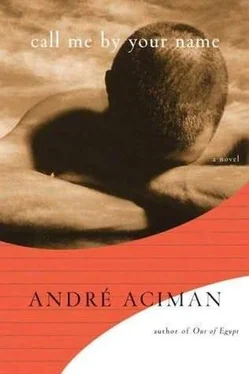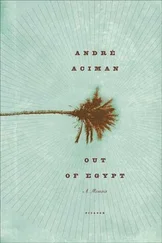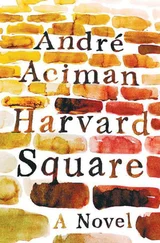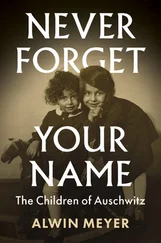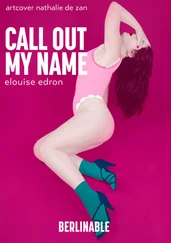André Aciman - Call Me by Your Name
Здесь есть возможность читать онлайн «André Aciman - Call Me by Your Name» весь текст электронной книги совершенно бесплатно (целиком полную версию без сокращений). В некоторых случаях можно слушать аудио, скачать через торрент в формате fb2 и присутствует краткое содержание. Год выпуска: 2007, Издательство: Farrar, Straus and Giroux, Жанр: Современная проза, на английском языке. Описание произведения, (предисловие) а так же отзывы посетителей доступны на портале библиотеки ЛибКат.
- Название:Call Me by Your Name
- Автор:
- Издательство:Farrar, Straus and Giroux
- Жанр:
- Год:2007
- ISBN:нет данных
- Рейтинг книги:5 / 5. Голосов: 6
-
Избранное:Добавить в избранное
- Отзывы:
-
Ваша оценка:
- 100
- 1
- 2
- 3
- 4
- 5
Call Me by Your Name: краткое содержание, описание и аннотация
Предлагаем к чтению аннотацию, описание, краткое содержание или предисловие (зависит от того, что написал сам автор книги «Call Me by Your Name»). Если вы не нашли необходимую информацию о книге — напишите в комментариях, мы постараемся отыскать её.
is clear-eyed, bare-knuckled, and ultimately unforgettable.
Call Me by Your Name — читать онлайн бесплатно полную книгу (весь текст) целиком
Ниже представлен текст книги, разбитый по страницам. Система сохранения места последней прочитанной страницы, позволяет с удобством читать онлайн бесплатно книгу «Call Me by Your Name», без необходимости каждый раз заново искать на чём Вы остановились. Поставьте закладку, и сможете в любой момент перейти на страницу, на которой закончили чтение.
Интервал:
Закладка:
“I’ll go with you to B.,” he said. “But — no speeches.”
“No speeches, nothing, not a word.”
“What do you say we grab our bikes in half an hour?”
Oh, Oliver, I said to myself on my way to the kitchen for a quick bite to eat, I’ll do anything for you. I’ll ride up the hill with you, and I’ll race you up the road to town, and won’t point out the sea when we reach the berm, and I’ll wait at the bar in the piazzetta while you meet with your translator, and I’ll touch the memorial to the unknown soldier who died on the Piave, and I won’t utter a word, I’ll show you the way to the bookstore, and we’ll park our bikes outside the shop and go in together and leave together, and I promise, I promise, I promise, there’ll be no hint of Shelley, or Monet, nor will I ever stoop to tell you that two nights ago you added an annual ring to my soul.
I am going to enjoy this for its own sake, I kept telling myself. We are two young men traveling by bike, and we’re going to go to town and come back, and we’ll swim, play tennis, eat, drink, and late at night run into each other on the very same piazzetta where two mornings ago so much but really nothing was said between us. He’ll be with a girl, I’ll be with a girl, and we’re even going to be happy. Every day, if I don’t mess things up, we can ride into town and be back, and even if this is all he is willing to give, I’ll take it — I’ll settle for less, even, if only to live with these threadbare scraps.
We rode our bicycles to town that morning and were done with his translator before long, but even after a hasty coffee at the bar, the bookstore wasn’t open yet. So we lingered on the piazzetta, I staring at the war memorial, he looking out at the view of the speckling bay, neither of us saying a word about Shelley’s ghost, which shadowed our every step through town and beckoned louder than Hamlet’s father. Without thinking, he asked how anyone could drown in such a sea. I smiled right away, because I caught his attempt to backpedal, which instantly brought complicit smiles to our faces, like a passionate wet kiss in the midst of a conversation between two individuals who, without thinking, had reached for each other’s lips through the scorching red desert both had intentionally placed between them so as not to grope for each other’s nakedness.
“I thought we weren’t going to mention—,” I began.
“No speeches. I know.”
When we returned to the bookshop, we left our bikes outside and went in.
This felt special. Like showing someone your private chapel, your secret haunt, the place where, as with the berm, one comes to be alone, to dream of others. This is where I dreamed of you before you came into my life.
I liked his bookstore manner. He was curious but not entirely focused, interested yet nonchalant, veering between a Look what I’ve found and Of course, how could any bookstore not carry so-and-so!
The bookseller had ordered two copies of Stendhal’s Armance , one a paperback edition and the other an expensive hardbound. An impulse made me say I’d take both and to put them on my father’s bill. I then asked his assistant for a pen, opened up the hardbound edition, and wrote, Zwischen Immer und Nie, for you in silence, somewhere in Italy in the mid-eighties.
In years to come, if the book was still in his possession, I wanted him to ache. Better yet, I wanted someone to look through his books one day, open up this tiny volume of Armance , and ask, Tell me who was in silence, somewhere in Italy in the mid-eighties? And then I’d want him to feel something as darting as sorrow and fiercer than regret, maybe even pity for me, because in the bookstore that morning I’d have taken pity too, if pity was all he had to give, if pity could have made him put an arm around me, and underneath this surge of pity and regret, hovering like a vague, erotic undercurrent that was years in the making, I wanted him to remember the morning on Monet’s berm when I’d kissed him not the first but the second time and given him my spit in his mouth because I so desperately wanted his in mine.
He said something about the gift being the best thing he’d received all year. I shrugged my shoulders to make light of perfunctory gratitude. Perhaps I just wanted him to repeat it.
“I am glad, then. I just want to thank you for this morning.” And before he even thought of interrupting, I added, “I know. No speeches. Ever.”
On our way downhill, we passed my spot, and it was I this time who looked the other way, as though it had all but slipped my mind. I’m sure that if I had looked at him then, we would have exchanged the same infectious smile we’d immediately wiped off our faces on bringing up Shelley’s death. It might have brought us closer, if only to remind us how far apart we needed to be now. Perhaps in looking the other way, and knowing we had looked the other way to avoid “speeches,” we might have found a reason to smile at each other, for I’m sure he knew I knew he knew I was avoiding all mention of Monet’s berm, and that this avoidance, which gave every indication of drawing us apart, was, instead, a perfectly synchronized moment of intimacy which neither of us wished to dispel. This too is in the picture book, I might have said, but bit my tongue instead. No speeches.
But, if on our rides together the following mornings he were to ask, then I’d spill everything.
I’d tell him that though we rode our bicycles every day and took them up to our favorite piazzetta where I was determined never to speak out of turn, yet, each night, when I knew he was in bed, I’d still open my shutters and would step out onto the balcony, hoping he’d have heard the shaking glass of my French windows, followed by the telltale squeak of its old hinges. I’d wait for him there, wearing only my pajama bottoms, ready to claim, if he asked what I was doing there, that the night was too hot, and the smell of the citronella intolerable, and that I preferred to stay up, not sleep, not read, just stare, because I couldn’t bring myself to sleep, and if he asked why I couldn’t sleep, I’d simply say, You don’t want to know, or, in a roundabout way, just say that I had promised never to cross over to his side of the balcony, partly because I was terrified of offending him now, but also because I didn’t want to test the invisible trip wire between us— What trip wire are you talking about? — The trip wire which one night, if my dream is too powerful or if I’ve had more wine than usual, I could easily cross, then push open your glass door and say, Oliver, it’s me, I can’t sleep, let me stay with you. That trip wire!
The trip wire loomed at all hours of the night. An owl, the sound of Oliver’s own window shutters squeaking against the wind, the music from a distant, all-night discotheque in an adjoining hill town, the scuffling of cats very late at night, or the creak of the wooden lintel of my bedroom door, anything could wake me. But I’d known these since childhood and, like a sleeping fawn flicking his tail at an intrusive insect, knew how to brush them away and fall instantly back to sleep. Sometimes, though, a mere nothing, like a sense of dread or shame, would slip its way out of my sleep and hover undefined about me and watch me sleep and, bending down to my ear, finally whisper, I’m not trying to wake you, I’m really not, go back to sleep, Elio, keep sleeping —while I made every effort to recover the dream I was about to reenter any moment now and could almost rescript if only I tried a bit harder.
But sleep would not come, and sure enough not one but two troubling thoughts, like paired specters materializing out of the fog of sleep, stood watch over me: desire and shame, the longing to throw open my window and, without thinking, run into his room stark-naked, and, on the other hand, my repeated inability to take the slightest risk to bring any of this about. There they were, the legacy of youth, the two mascots of my life, hunger and fear, watching over me, saying, So many before you have taken the chance and been rewarded, why can’t you? No answer. So many have balked, so why must you? No answer. And then it came, as ever deriding me: If not later, Elio, when?
Читать дальшеИнтервал:
Закладка:
Похожие книги на «Call Me by Your Name»
Представляем Вашему вниманию похожие книги на «Call Me by Your Name» списком для выбора. Мы отобрали схожую по названию и смыслу литературу в надежде предоставить читателям больше вариантов отыскать новые, интересные, ещё непрочитанные произведения.
Обсуждение, отзывы о книге «Call Me by Your Name» и просто собственные мнения читателей. Оставьте ваши комментарии, напишите, что Вы думаете о произведении, его смысле или главных героях. Укажите что конкретно понравилось, а что нет, и почему Вы так считаете.
